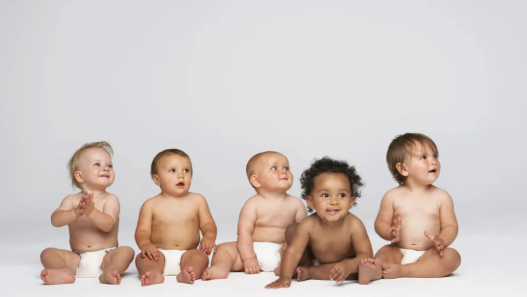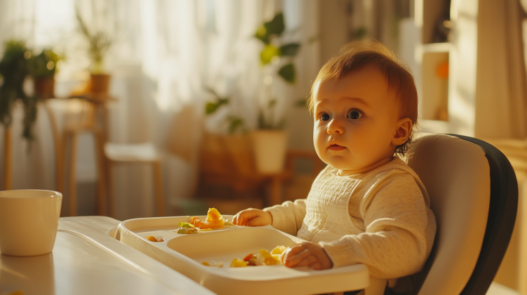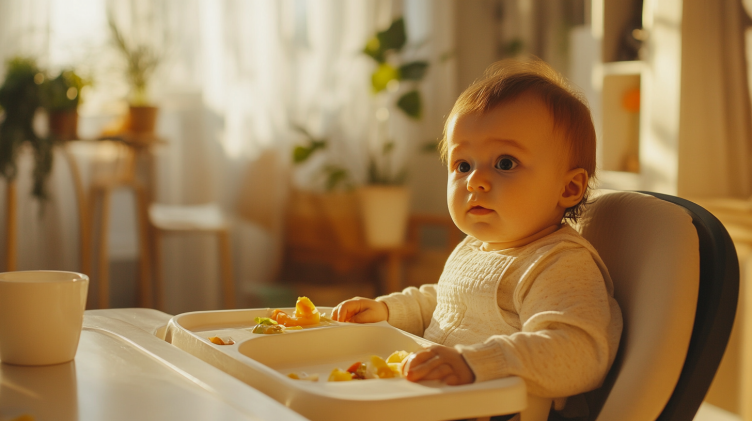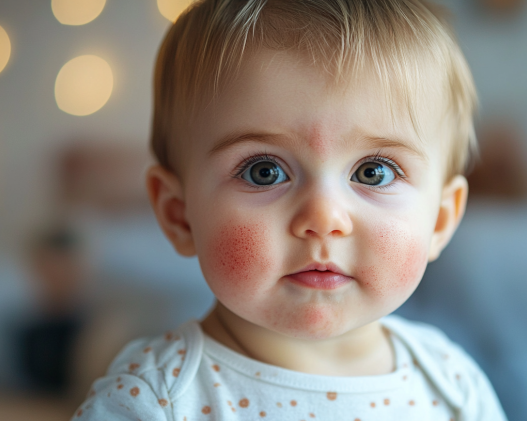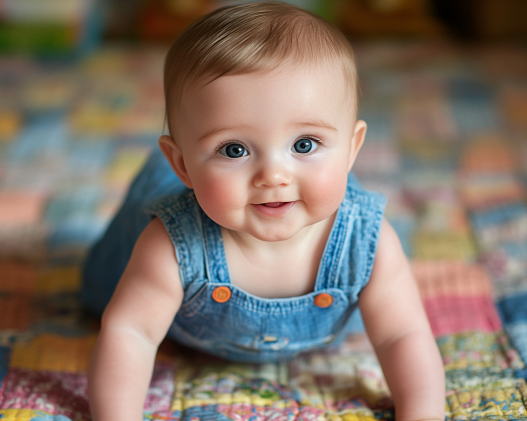The Natural Desire for Food Begins Early
From the moment babies are born, they begin to show interest in food, and it’s quite fascinating to watch. You’ll notice when you eat, your baby stares at your food with wide eyes, and sometimes even mimics chewing. Around six months, this curiosity turns into a strong desire to try food for themselves. Their little eyes seem to say, “I want some too!”
But this isn’t just about curiosity—it’s actually a sign of both their physiological and psychological needs. This is part of how babies start to explore the world around them: by observing and mimicking, they learn about the “adult way of eating“.
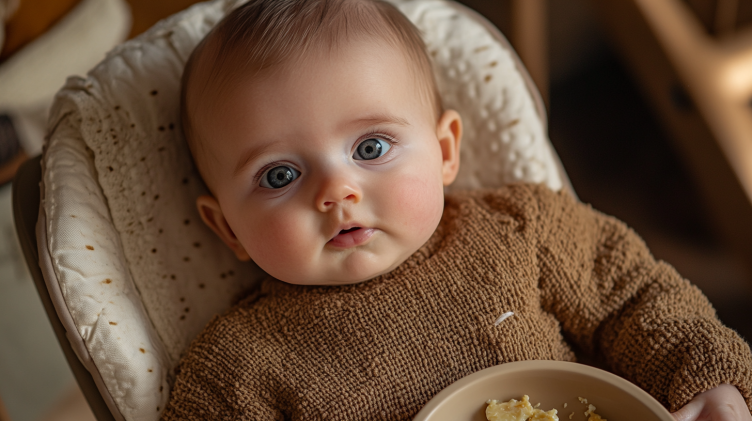
Why Does Watching You Eat Make Babies Anxious?
You’ve probably seen it before: your baby sitting in their high chair, watching you eat, and suddenly they start crying or fussing because they want food too. This seems like a simple case of “wanting food,” but there’s more to it than just hunger.
Emotional Needs: Babies see you eating, and psychologically they feel, “I want to eat too!” When this desire isn’t fulfilled, it can lead to anxiety and frustration.
Physiological Needs: By the time babies reach the age for solid food introduction, they may already be physically ready to try eating. Their bodies have developed enough to start digesting food, and watching you eat can trigger a natural hunger response.
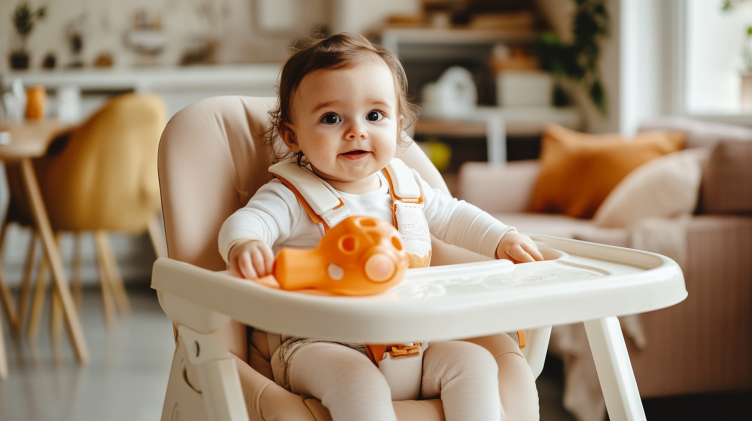
Quick Tip: If your baby gets anxious while watching you eat, let them join in the mealtime rituals. You can include them in the activity by interacting with them at the table, even if they can’t eat yet. This way, they feel included and their desire is somewhat fulfilled.
Is It Harmful for Babies to Watch You Eat for Long Periods?
Many parents are aware that babies should gradually start eating solids based on their age. But does letting your baby watch you eat for long periods have any negative effects on their development?
If your baby is over six months old and ready for solids, watching you eat can be part of the “preparation phase“—helping them adjust to the textures, flavors, and social aspects of mealtime. It’s also beneficial for developing eating habits and social skills.
Baby Development Tip: If your baby is already six months old, start introducing small amounts of solid foods to help reduce their anxiety. Before that stage, consider giving them soft toys or food-themed toys to distract them and minimize their hunger-driven anxiety.
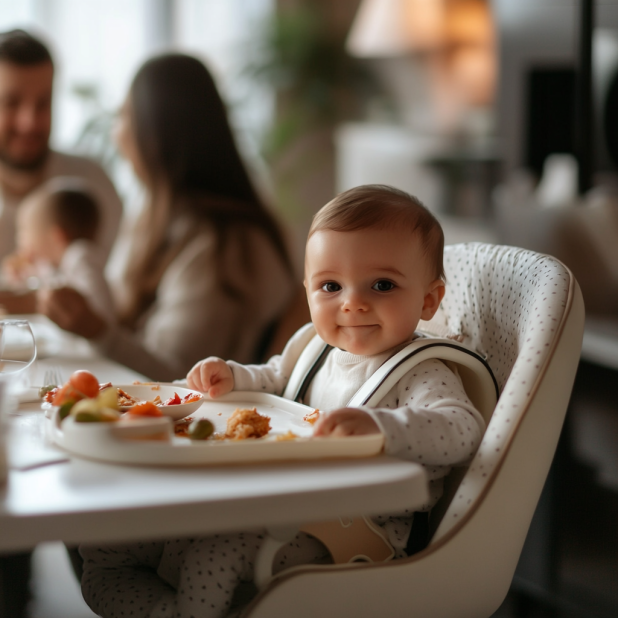
What to Do When Baby Is Crying for Food?
So, what do you do when your baby starts crying because they can’t eat? Here are some strategies to try:
Stage-by-Stage Adaptation
If your baby isn’t yet ready for solids, try focusing their attention on something else during mealtime, like a chew toy or a soft toy with food pictures. This helps them get used to the idea of sitting in the high chair without getting too frustrated.

Gradually Introduce Solid Foods
Once your baby is ready for solids, begin with liquid-based foods and slowly transition to solid textures. Start with small amounts during mealtime, and give them safe chewable foods like rice cakes to avoid overwhelming them.
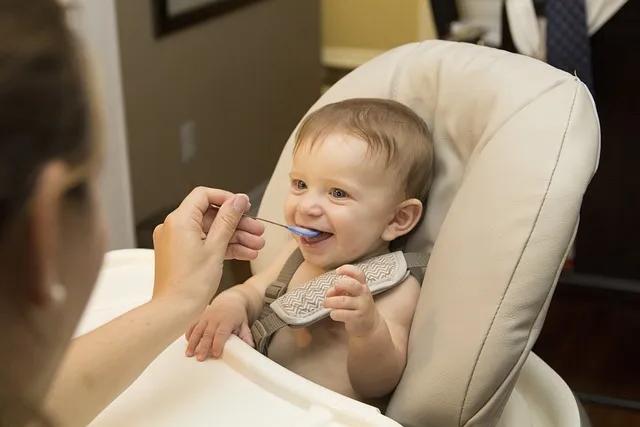
Create a Fun Mealtime Atmosphere
While your baby watches you eat, try to engage them in a fun and interactive way. Use encouraging words and smiles to make the moment feel enjoyable, not like a waiting game. You can say things like, “Mommy is eating now, and soon you’ll be eating too!” This will help your baby learn patience.
Don’t Let Baby Eat Adult Food Too Early
Though it’s tempting to let your baby try what you’re eating, remember that their digestive and immune systems are still developing. Don’t give them adult food until they are physically ready.
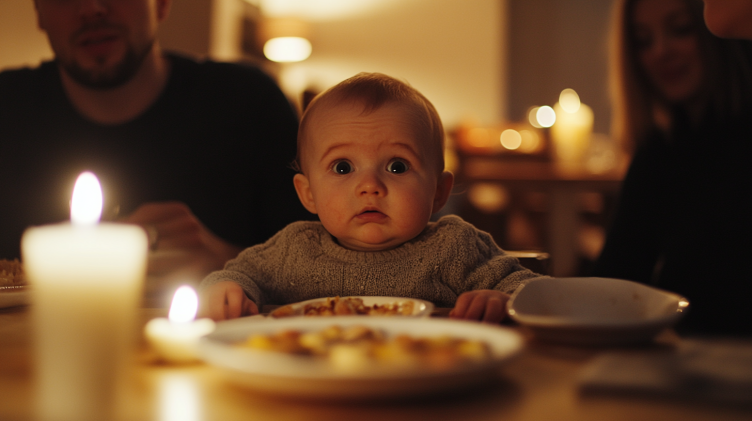
Final Thoughts: A Natural Part of Development
From today’s discussion, we can conclude that your baby’s anxiety while watching you eat is not a “bad habit.” It’s actually a natural part of their growth. Sitting in the high chair and observing you eat helps babies gradually adjust to food, develop good eating habits, and prepare psychologically and physically for their own mealtime.






